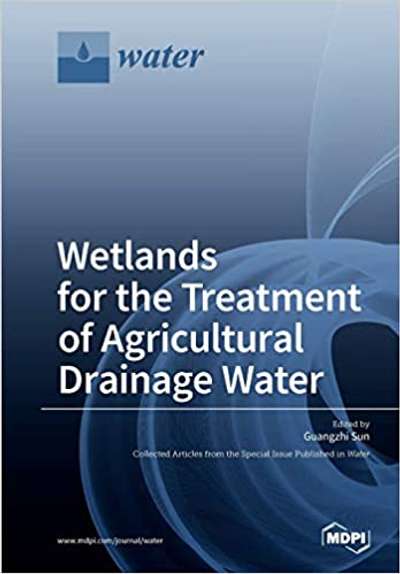Wetlands for the Treatment of Agricultural Drainage Water
Guangzhi Sun

Agricultural drainage, such as runoffs from farmlands and wineries, are contaminated waters. Their management is monitored by environmental protection authorities who set targets of volume or pollutant reductions. Due to large quantities and seasonal variations, the targets are often not met, and effective management remains a problem in many parts of the world.
Natural wetlands are known as the 'kidneys' of the earth with unique water purification functions that have long been recognized. Imitating the functions of natural wetlands, constructed wetlands are engineered systems purposely built to treat contaminated waters. They may therefore be called the 'artificial kidneys' of the earth. Rural areas often only have low-value lands available for constructed wetlands. Where large quantities of drainage are produced, farmlands are often adjacent to degraded natural wetlands that have reduced ecosystem functions. Controlled discharge and treatment in the wetlands can potentially be part of an integrated solution to multiple environmental problems.
This book includes some recent studies on the fate of pollutants removed from agricultural drainage in wetlands, modelling of wetland performance, innovative systems, and the use of non-hazardous agricultural waste in constructed wetlands for wastewater treatment. These studies enhance our understanding of wetland systems, and will help develop wetland technology towards solving the problems associated with agricultural drainage.
*Available as Download Only
MDPI Book Link (available for purchase)
Detail Penerbitan
- Terbit: 2018
- Penerbit: Mdpi AG
- ISBN-10: 3038972088
- ISBN-13: 978-3038972082